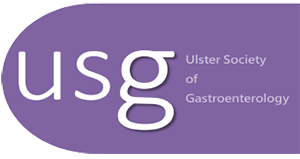Outcome of Gastrointestinal Cancer Access Referrals through a District General Hospital
Authors
Eccles JK, Lynch PMDepartments / Institutions
Antrim Area Hospital, Northern Health & Social Care TrustPublication Date
Spring 2014Introduction
The ‘Red Flag’ referral pathway was introduced to facilitate appropriate referral from primary care for cases of suspected cancer. We assessed the outcomes of gastrointestinal (GI) cancer access referrals to our Health Trust, through a retrospective review of 169 ‘red-flag’ patient referrals between January- February 2013 (86 suspected lower and 83 suspected upper GI cancers). 82 % (139/169) of patients had been referred via GP with ‘red flag’ urgency; the remaining 18% were upgraded at triage. 23% (39/169) of referrals did not meet the ‘red flag’ criteria, however only 51% (20/39) of these referrals were downgraded at triage. At investigations, 3 patients (2%) were diagnosed with gastric cancer, 3 (2%) with oesophageal cancer and 3 (1.6%) with colorectal cancer. All patients with confirmed cancer had ‘red flag’ symptoms. Following staging and MDM discussion, 2 colon cancer patients and 1 gastric cancer patient underwent curative surgery; 3 oesophageal cancer patients underwent palliative chemotherapy and 1 was stented. In the 86 “suspected lower GI cancer” patients, 19 (22%) had normal colonoscopy or CT colonography; common diagnoses included diverticulosis (27%), haemorrhoids (19%) and benign polyps (15%). In the 83 “suspected upper GI cancer” patients, 14 (17%) had normal gastroscopy, and gastritis (17%) and reflux oesophagitis (13%) were most commonly seen. We demonstrated the positive predictive value (PPV) of the ‘red flag’ referral pathway to be only 6.9%, suggesting limitations in its ability to detect GI cancers over benign conditions, as shown by the 95% of non-cancer diagnoses in our patient sample.
Latest News
Gastroenterology FK Meeting Provision and Challenges
Posted on: 2nd April 2021Latest Event
There are no up-coming events.E-Publications
Download our latest Documents


